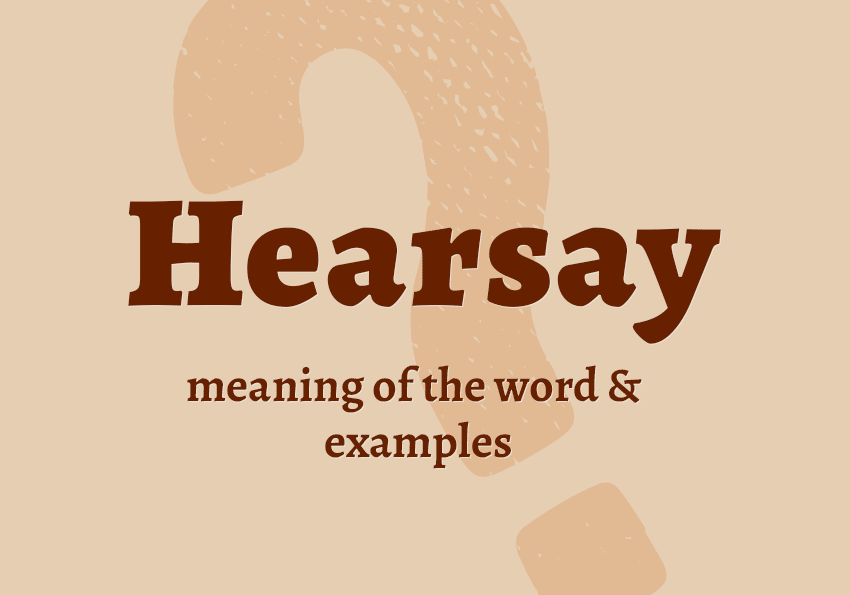Hearsay – what does it mean? Definition, collocations and examples in sentences
Have you heard the latest hearsay? No way, come on… though… Well, maybe you have, but you are not sure what hearsay is. Let us then explain the meaning of the word and provide you with some neat examples.

Hearsay – definition and meaning
The word hearsay (/ˈhɪə.seɪ/) can be defined as ‘a piece of information that you have heard, but you do not know whether it is true’. The synonyms for hearsay include rumour and gossip.
Legal terminology gives us one more definition of hearsay. The phrase hearsay evidence means ‘evidence which is not based on a witness’s knowledge, but on another’s statement, not made under and oath’.
Hearsay – origin
Hearsay is a compound of two verbs: hear + say. The phrase first appeared in Middle English, in the 15th century, and initially the two words were written separately. From the very beginning, the meaning of the phrase has been clear: to hear what other people say.
Hearsay – collocations
Your education should not be based on hearsay. Information known only by hearsay is often untrue, so please, refrain from piecing your knowledge from hearsay. Do not rely on it, but rather refer to authorised sources, just like the one below:
Hearsay – examples in literature
Have you ever reflected, Madame, on the enormous part that hearsay plays in life. “Mr. A said,” “Mrs. B. told us.” “Miss C. explained why –” and so on. And if the known facts seem to fit with what we have been told, then we never question them. There are so many things that do not concern us, and so we do not bother to uncover the actual facts.
Agatha Christie, Hercule Poirot and the Greenshore Folly, 2013
Classics are books which, the more we think we know them through hearsay, the more original, unexpected, and innovative we find them when we actually read them.
Italo Calvino, Why Read the Classics, 1991


